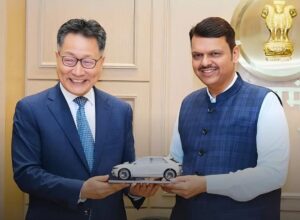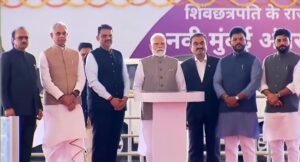Diwali Bonanza for Buyers: Govt likely to slash GST on cars, SUVs and two-wheelers from 28% to 18%

Diwali Bonanza for Buyers: Govt likely to slash GST on cars, SUVs and two-wheelers from 28% to 18%
The automobile sector may be in for festive cheer as the government considers a major GST cut on passenger cars, SUVs, and two-wheelers. According to reports, a proposal is under discussion to reduce the current 28% GST rate to 18%. If cleared in the upcoming GST Council meeting, the move will bring much-needed relief to both manufacturers and buyers during the high-demand Diwali season.
Currently, passenger vehicles attract 28% GST plus a compensation cess ranging from 1% to 22%, pushing the effective tax on certain SUVs to nearly 50%. For two-wheelers, GST is also 28%, with a 3% cess applicable only on bikes above 350cc. Electric vehicles already benefit from a concessional 5% GST.
The proposed reform is part of a broader rationalisation plan to simplify the GST structure, merging the 12% and 28% slabs into a single 18% rate, with 5% retained for essentials. Luxury items may continue to face higher duties, while “sin goods” could be taxed at around 40%. The compensation cess, introduced as a temporary measure, is due to expire in November and will be phased out.

Prime Minister Narendra Modi, in his Independence Day speech, hinted at these reforms, promising “a double celebration this Diwali” with lower taxes for the common man and support for small businesses and MSMEs.
A GST cut to 18% could significantly reduce vehicle prices, especially in the entry-level car and two-wheeler segments that have struggled with weak demand. Rising costs, stricter regulations, and expensive financing have made budget models less attractive for price-sensitive buyers.
Industry leaders including Maruti Suzuki’s R.C. Bhargava, Hero MotoCorp’s Pawan Munjal, and Bajaj Auto’s Rajiv Bajaj have been pressing for lower GST to revive sales. Data from SIAM shows small car sales dropped 11.6% in FY25 compared to the previous year, while entry-level motorcycles saw stagnant growth.
The rationalisation is not limited to automobiles. Items like cement and air conditioners, currently taxed at higher slabs, may also see reductions. Economists say fewer tax rates would improve compliance, reduce refund delays, and strengthen revenue in the long run.
If implemented, the move could mark the biggest reform in GST since its rollout, giving a strong festive-season push to India’s auto sector and boosting consumer demand.












